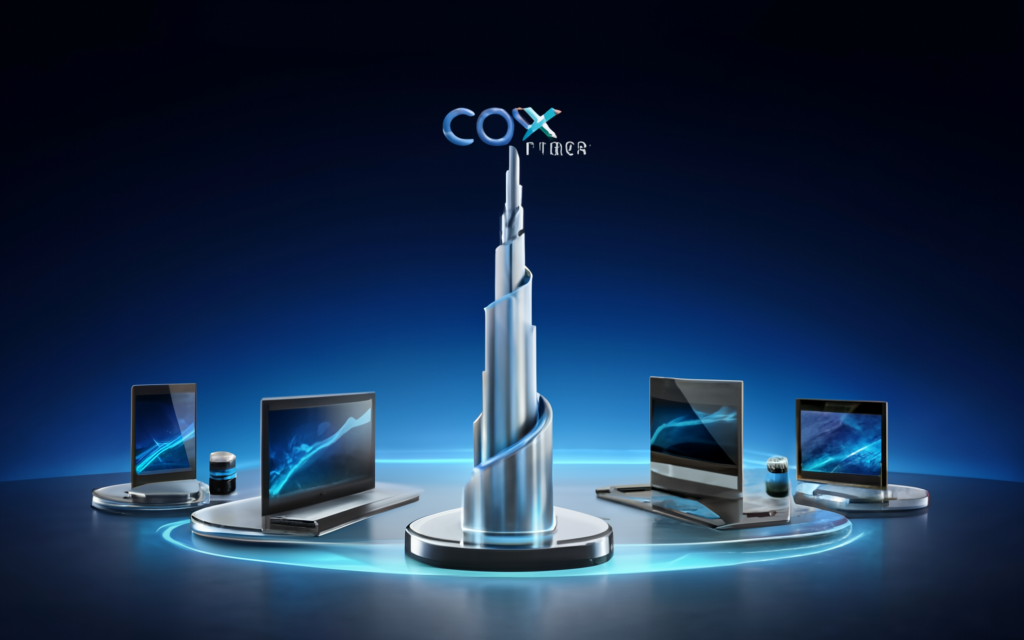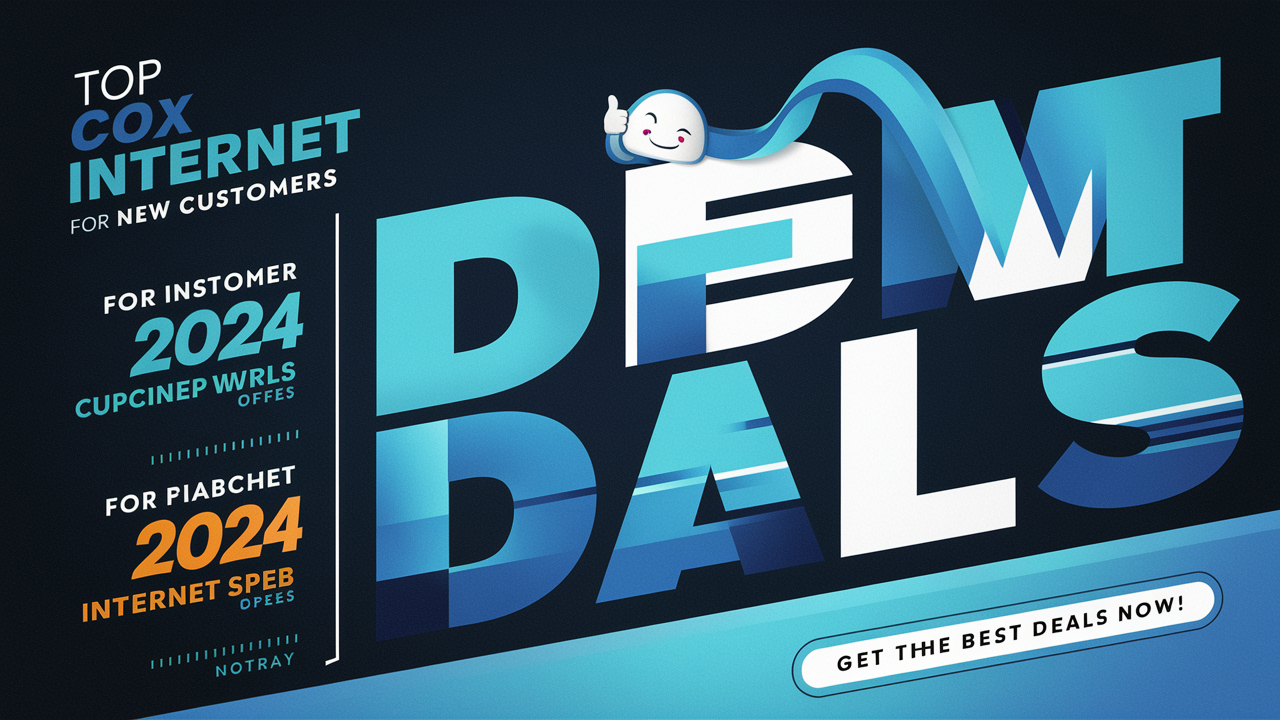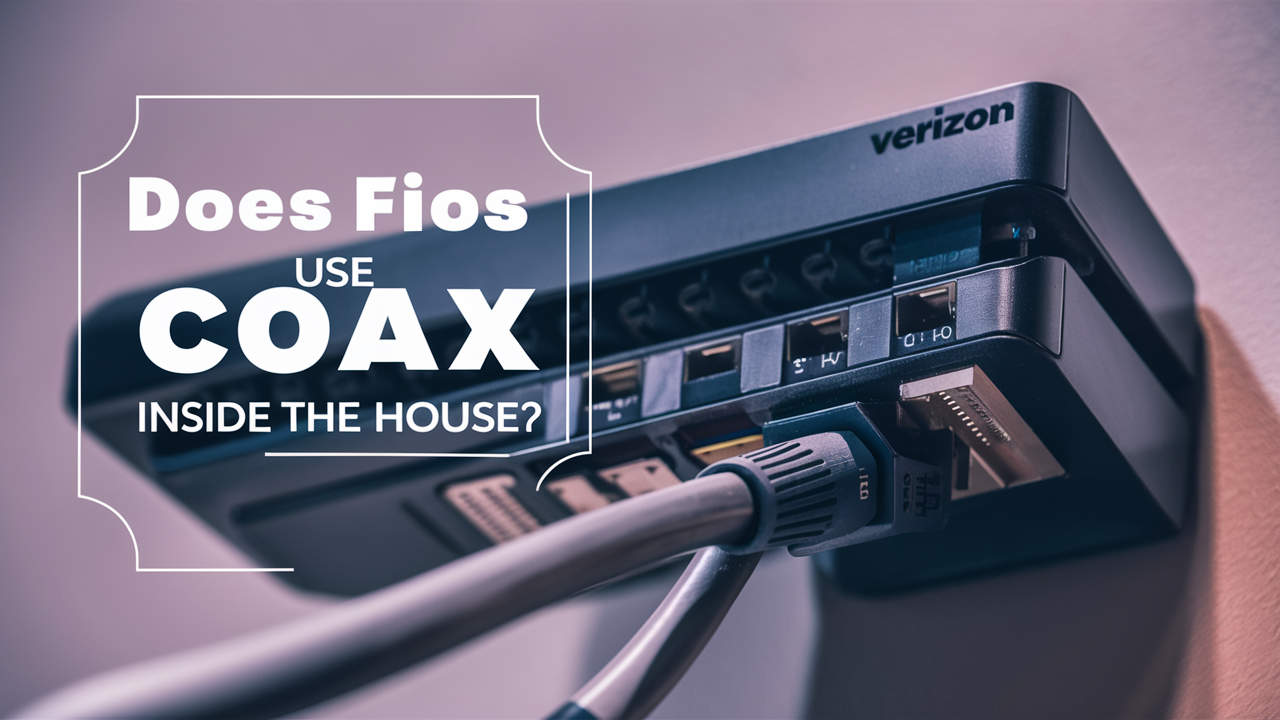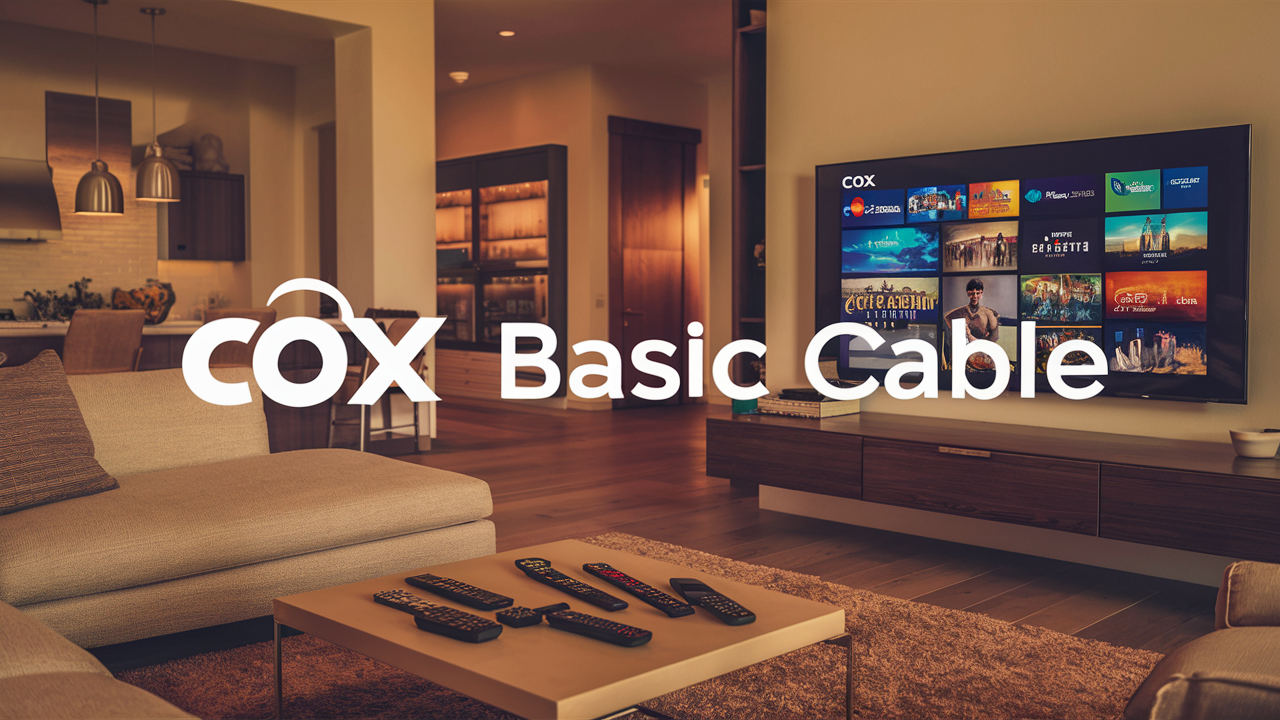Is Cox Fiber or Cable?

Choosing between Cox Fiber and Cox Cable internet depends on your location, speed needs, and budget. Fiber offers superior speed, reliability, and lower latency, ideal for heavy users. Cable is more widely available and often more affordable, suitable for general browsing and moderate streaming. This guide breaks down the differences to help you decide.
Cox Fiber vs. Cable: Understanding Your Options
In the ever-evolving digital landscape of 2025, reliable and high-speed internet is no longer a luxury but a necessity. Whether you're a remote worker, a dedicated gamer, a streamer, or simply a household managing multiple connected devices, the performance of your internet connection directly impacts your daily life. Cox Communications, a prominent internet service provider (ISP) in the United States, offers two primary types of broadband technology: Fiber optic and Cable. While both aim to deliver internet access, the underlying technology, performance capabilities, and cost structures differ significantly. This comprehensive guide will delve deep into the nuances of Cox Fiber versus Cox Cable, empowering you to make an informed decision tailored to your specific needs and geographical availability. We will explore the technical underpinnings, compare performance metrics, analyze pricing strategies, and discuss crucial factors that will help you select the best Cox internet service for your home or business in 2025.
The question of "Cox Fiber or Cable?" is one that many consumers face when evaluating internet service providers. The choice isn't always straightforward, as availability varies by region, and each technology has its own set of advantages and disadvantages. As of 2025, Cox is actively expanding its fiber network, making it a more viable option for a growing number of households. However, its extensive cable infrastructure remains the backbone of its service in many areas. Understanding the fundamental differences between these two technologies is the first step toward making the right choice. This article aims to demystify these differences, providing clear, actionable insights to guide your decision-making process.
The Core Technologies: Fiber vs. Coaxial Cable
To truly understand the difference between Cox Fiber and Cox Cable, it's essential to grasp the fundamental technologies they employ.
Fiber Optic Internet
Fiber optic internet, often referred to as "fiber-to-the-home" (FTTH), utilizes thin strands of glass or plastic to transmit data as pulses of light. These light signals travel at nearly the speed of light, offering unparalleled speed and efficiency. The infrastructure involves laying fiber optic cables directly to your home, bypassing older coaxial cable networks entirely. This direct connection is the key to its superior performance. Because light is used for transmission, fiber is less susceptible to electromagnetic interference, signal degradation over distance, and environmental factors that can affect traditional copper-based networks. In 2025, fiber optic technology is widely considered the gold standard for broadband internet due to its inherent advantages in speed, latency, and reliability.
Coaxial Cable Internet
Cox Cable internet, on the other hand, uses coaxial cables – the same type of cable often used for cable television. This technology transmits data using electrical signals over copper wires. While coaxial cable technology has been significantly upgraded over the years with standards like DOCSIS (Data Over Cable Service Interface Specification), it still has inherent limitations compared to fiber. The electrical signals can be affected by distance from the provider's hub, leading to potential speed degradation. Furthermore, shared bandwidth is a common characteristic of cable internet. This means that in a neighborhood where many users are online simultaneously, especially during peak hours, speeds can slow down as the available bandwidth is divided among users. However, cable internet is a mature technology with a widespread existing infrastructure, making it readily available in many more areas than fiber.
Cox's Network Landscape in 2025: Availability and Rollout
As of 2025, Cox Communications continues to invest heavily in expanding its fiber optic network, but its availability is still geographically dependent. Fiber optic internet is typically found in newer developments, urban centers, and specific suburban areas where Cox has prioritized infrastructure upgrades. The rollout of fiber is a complex and costly endeavor, requiring the installation of new cables. Therefore, if you live in an older neighborhood or a more rural area, you are more likely to have access to Cox's cable internet service.
To determine which service is available at your address, the most accurate method is to visit the Cox Communications website and enter your ZIP code. They provide a clear indication of the services available in your specific location. It's also worth noting that some areas might offer a hybrid approach, where fiber optic cables run to a neighborhood node, and then coaxial cable connects to individual homes. This is often referred to as "cable" service but benefits from proximity to the fiber backbone. True fiber-to-the-home (FTTH) provides the most significant performance advantages.
The ongoing investment in fiber by ISPs like Cox signifies a clear trend towards faster and more robust internet connectivity. While cable remains a dominant force due to its existing footprint, the future of high-speed broadband is undeniably fiber. As of 2025, Cox's fiber expansion efforts are concentrated in key markets, aiming to capture users who demand the highest performance for their digital activities. Consumers in these expanding fiber zones have a compelling choice to upgrade their service.
Performance Metrics: Speed, Latency, and Reliability
When comparing Cox Fiber and Cable, performance is a critical differentiator. Let's break down the key metrics:
Speed: Download and Upload
Fiber optic internet generally offers significantly higher speeds than cable internet, particularly for upload speeds. As of 2025, Cox's fiber plans can offer symmetrical speeds, meaning download and upload speeds are identical. For example, you might find plans offering 1 Gbps download and 1 Gbps upload. This is revolutionary for tasks like large file uploads, high-definition video conferencing, and cloud backups. Cable internet, while offering respectable download speeds (often up to 1 Gbps in many areas), typically has much slower upload speeds. Upload speeds on cable plans might range from 10 Mbps to 50 Mbps, which can be a bottleneck for content creators, remote workers who frequently share large files, or those who participate in live streaming.
For example, a Cox Cable plan might advertise "up to 500 Mbps download / 10 Mbps upload," while a comparable Cox Fiber plan could be "500 Mbps download / 500 Mbps upload." The difference in upload capability is substantial and directly impacts the user experience for bandwidth-intensive upload tasks.
Latency (Ping)
Latency, often measured as "ping," refers to the time it takes for data to travel from your device to a server and back. Lower latency means a more responsive internet connection. Fiber optic internet boasts significantly lower latency compared to cable. This is because light signals travel more directly and efficiently through glass fibers than electrical signals through copper wires. In 2025, typical fiber latency can be as low as 5-10 milliseconds (ms), while cable latency might range from 20-50 ms or higher, especially during peak usage times. For gamers, low latency is paramount for a smooth, lag-free experience. It also improves the responsiveness of real-time applications like video calls and online gaming.
Reliability and Consistency
Fiber optic connections are generally more reliable and consistent than cable. Fiber is less susceptible to external factors like weather, electromagnetic interference, and physical damage to the cables. Cable internet, with its reliance on electrical signals over copper, can be more prone to performance fluctuations, especially in areas with older infrastructure or high network congestion. The shared nature of cable bandwidth means that your speeds can be affected by your neighbors' online activity. Fiber, with its dedicated connection, tends to offer a more stable and predictable performance, making it ideal for critical applications like remote work, telemedicine, and online education where consistent connectivity is vital.
Pricing and Value: A Cost-Benefit Analysis
When deciding between Cox Fiber and Cable, cost is a significant factor for most consumers. As of 2025, fiber optic internet typically comes with a higher price tag than comparable cable internet plans. This is largely due to the more expensive infrastructure required for fiber deployment and the superior performance it offers.
However, it's crucial to consider the value proposition. While fiber might cost more upfront, the benefits it provides – symmetrical speeds, lower latency, and enhanced reliability – can justify the premium for many users. For households with multiple users, heavy streamers, gamers, or those relying on a stable connection for work, the added cost of fiber can translate into a significantly better user experience and increased productivity.
Cox often offers various tiers for both fiber and cable services. For example:
| Feature | Cox Cable Internet (Example 2025 Plans) | Cox Fiber Internet (Example 2025 Plans) |
|---|---|---|
| Download Speed | Up to 500 Mbps | Up to 1 Gbps (Symmetrical) |
| Upload Speed | Up to 10 Mbps | Up to 1 Gbps (Symmetrical) |
| Latency | Moderate (20-50+ ms) | Very Low (5-10 ms) |
| Reliability | Good, but can vary with congestion | Excellent, highly consistent |
| Typical Monthly Price (Est. 2025) | $60 - $90 | $80 - $120+ |
| Installation Fees | Often waived or lower | May be higher or waived with promotions |
It's important to note that these prices are estimates for 2025 and can vary based on promotions, bundles with other Cox services (like TV or phone), and specific regional pricing. Always check Cox's official website for the most accurate and up-to-date pricing for your address. Additionally, consider the total cost of ownership. If fiber allows you to work more efficiently or reduces downtime, its higher monthly cost might be offset by increased productivity or avoided costs associated with service interruptions.
Choosing the Right Cox Plan for Your Needs
The "best" Cox internet service—whether Fiber or Cable—ultimately depends on your individual usage patterns and priorities. Here's a guide to help you make the right choice:
Who Should Choose Cox Fiber?
- Heavy Internet Users: Households with multiple people streaming 4K video, downloading large files, or engaging in high-bandwidth activities simultaneously.
- Gamers: The low latency and consistent speeds of fiber provide a superior online gaming experience, reducing lag and improving reaction times.
- Remote Workers and Professionals: For those who rely on stable, high-speed internet for video conferencing, cloud-based applications, uploading large files, or running a home office. Symmetrical upload speeds are a game-changer here.
- Content Creators: Uploading videos, podcasts, or large creative files is significantly faster and more efficient with fiber's symmetrical speeds.
- Future-Proofing: If you want the most advanced and future-ready internet technology available, fiber is the clear choice.
Who Should Consider Cox Cable?
- Casual Internet Users: If your primary online activities include basic web browsing, checking email, and occasional social media use.
- Light Streamers: For households that primarily stream in HD (not 4K) and don't have many devices online simultaneously.
- Budget-Conscious Consumers: Cable internet plans are generally more affordable than fiber, making them a good option if budget is a primary concern and fiber is not available or prohibitively expensive.
- Those with Limited Availability: If fiber optic service is not yet available in your area, Cox Cable is likely your best option for a high-speed connection from Cox.
- Bundling Needs: Sometimes, bundling cable internet with TV and phone services can offer significant savings, making it a more attractive overall package.
Before making a decision, it's advisable to conduct a speed test on your current connection (if applicable) to understand your typical performance. Also, consider the number of devices in your household that will be connected simultaneously. A simple rule of thumb: if you have more than 5-7 devices actively using the internet at any given time, or if you experience buffering or slow speeds regularly, you likely need a more robust connection, which fiber can provide.
Beyond Speed: Additional Factors to Consider
While speed, latency, and reliability are paramount, several other factors should influence your decision between Cox Fiber and Cable:
Data Caps
In 2025, many ISPs, including Cox, implement data caps on their internet plans. These caps limit the amount of data you can download and upload each month. Exceeding these limits can result in throttling (reduced speeds) or overage charges. Fiber optic plans are often offered with unlimited data, or significantly higher data allowances, reflecting their higher bandwidth capabilities. Cable plans, especially lower-tier ones, may have more restrictive data caps. Always check the data allowance for any plan you are considering, as heavy users can easily exceed typical cable caps.
Contract Terms and Promotions
Cox, like most ISPs, often requires customers to sign contracts, typically for 12 or 24 months, especially when promotional pricing is involved. These contracts can come with early termination fees if you cancel service before the contract period ends. Fiber plans might have different contract structures or promotional offers than cable plans. It's essential to read the fine print regarding contract lengths, fees, and the duration of promotional pricing before signing up. Understand what the price will be after the promotional period expires.
Bundling Options
Cox offers bundles that combine internet, TV, and phone services. Bundling can sometimes lead to cost savings compared to subscribing to each service individually. However, evaluate whether you truly need all the services included in a bundle. Sometimes, a standalone internet plan might be more cost-effective. If you're considering a bundle, compare the overall cost and the specific features of both fiber and cable bundles if both are available.
Customer Service and Technical Support
The quality of customer service and technical support can vary among ISPs and even by region. While this isn't directly tied to fiber versus cable technology, it's a crucial aspect of the overall service experience. Research recent customer reviews and satisfaction ratings for Cox in your specific area to gauge the quality of their support for both fiber and cable services.
Future-Proofing Your Connection: The Long-Term View
In the rapidly advancing digital world of 2025 and beyond, anticipating future internet needs is a wise strategy. The demand for bandwidth is only expected to increase with the proliferation of 8K streaming, virtual and augmented reality applications, more sophisticated smart home devices, and increasingly data-intensive cloud services. Fiber optic technology is inherently built for the future. Its capacity for speed is virtually limitless, meaning that as new technologies emerge, fiber networks will be able to accommodate them without requiring complete infrastructure overhauls. This makes a fiber connection a more future-proof investment.
Cable technology, while continuously upgraded through standards like DOCSIS 4.0, faces more inherent physical limitations. While it can deliver impressive speeds today, its ability to scale to the extreme bandwidth demands of the distant future may eventually be surpassed by fiber. Therefore, if you are looking for a service that will reliably meet your needs for the next decade or more, and fiber is an option, it's often the more strategic choice.
Consider the lifespan of your internet investment. While cable might be cheaper now, the potential need to upgrade to fiber in a few years if your usage patterns change or new technologies emerge could incur additional costs and installation hassles. Opting for fiber from the outset, where feasible, can provide peace of mind and ensure your home is equipped for the digital future.
Conclusion: Making the Informed Decision
In the quest to determine whether Cox Fiber or Cable is the superior choice for your internet needs in 2025, the answer hinges on a careful evaluation of availability, performance requirements, budget, and future-proofing. Fiber optic internet stands out as the premium option, offering unparalleled symmetrical speeds, exceptionally low latency, and superior reliability. It is the ideal solution for power users, gamers, remote professionals, and anyone who demands the absolute best in connectivity. The ability to upload and download at identical, high speeds is a significant advantage that cable simply cannot match consistently. Furthermore, fiber's inherent resilience and capacity make it a truly future-proof technology, ensuring your connection remains robust for years to come.
However, the reality is that fiber optic service is not universally available. Cox's extensive cable network remains a vital and often the only high-speed option for many households. Cable internet, while not reaching the same performance heights as fiber, offers substantial download speeds that are more than adequate for a vast majority of users. It excels in general web browsing, HD streaming, and everyday online activities. For those on a tighter budget or with less demanding internet usage, Cox Cable provides a cost-effective and reliable solution. The key is to understand your specific needs. Conduct a thorough assessment of your household's internet habits, the number of connected devices, and critical applications. Visit the Cox website to confirm service availability at your exact address, as this is the most crucial limiting factor.
Ultimately, if Cox Fiber is available at your location and fits within your budget, it represents the superior technological choice for performance and future readiness. If fiber is not an option, or if cost is a primary constraint, Cox Cable remains a strong contender, offering robust internet service that can meet the demands of most modern households. Always scrutinize contract terms, data caps, and promotional pricing to ensure you are getting the best value and avoiding hidden costs. By carefully weighing these factors, you can confidently choose between Cox Fiber and Cable, securing an internet connection that best serves your digital life in 2025 and beyond.





